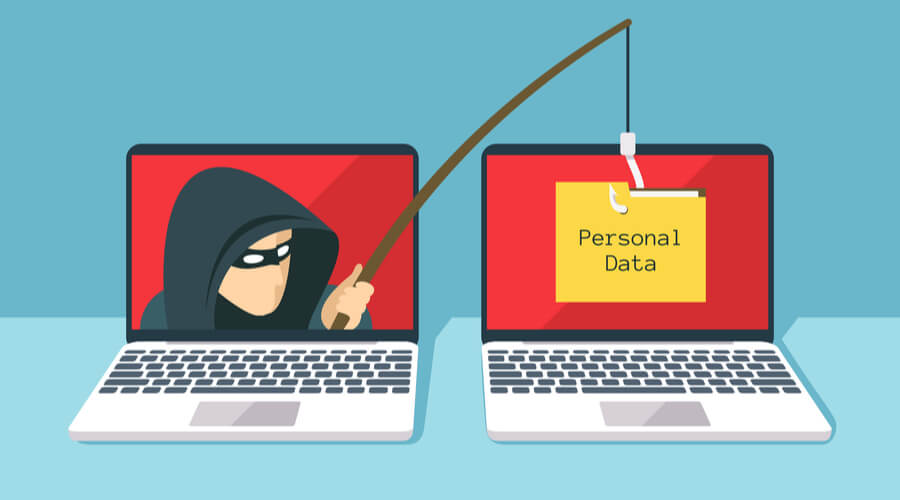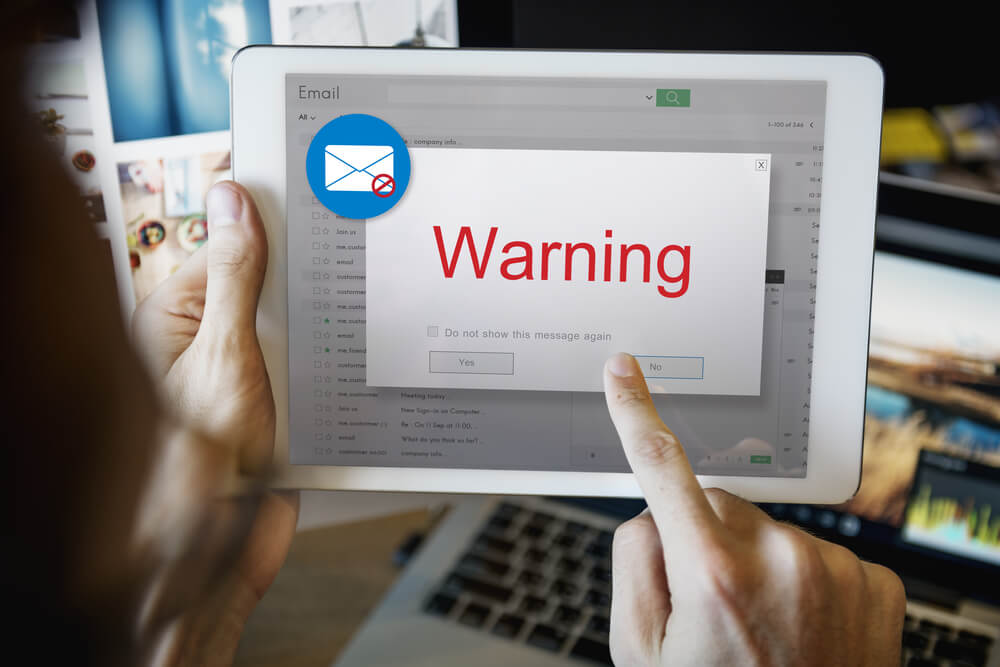How to Avoid Phishing Scams
Will Simonds
Reading time: 4 minutes

Table of Contents
With great convenience, and virtually fathomless access to information, entertainment, and ecommerce, comes great risks. That’s the trade-off that all of us make when we use the internet. It’s a significantly greater risk when we use the internet for email and any kind of ecommerce. Doing so opens us up to attempted hacks, identity thieving scams, viruses, malware, spyware, scareware, pharming, and a variety of other criminal schemes. To learn how to avoid phishing scams, you should use the following tips.
Steer clear of the bait
Among the most common and one of the most dangerous schemes is “phishing.” For the uninitiated, phishing is an email-based scam in which a cyber-criminal (or group of them) send emails purported to be legitimate, from legitimate businesses or friends, that actually contain malicious links or attachments. The point of phishing is to extract private, personal information, and eventually money, from the unsuspecting victim. If there’s anything encouraging about phishing, however, it’s that the people threatened by phishing scams have recourse and can also take steps to avoid being fooled by phishing scams.
Perhaps the most important rule of avoiding phishing scams is to not click on links you’re sent in an email. (And one of the most effective methods to prevent being reached by phishing emails is learning how to remove personal information from Google.) Unfortunately, even your bank, companies you work with, and friends and family can be suspect. After all, logos can be faked, and even if you keep your personal information private, the accounts of friends and family members can still be hacked.
But there are warning signs. If anything seems “off” or you encounter any of the following, proceed with caution:
- Logos that look “off”
- Misspellings and other inconsistencies
- URLs that don’t match the company’s name
- Unsecured URLs (“http” rather than “https” accompanied by the padlock icon)
- URLs with foreign domains
- URLs with chunks of gibberish early in the address
The best practice regarding any link you’re sent via email is to ignore the link or attachment and contact the actual company, or the person who supposedly sent you the message. Often, the earlier-mentioned “scareware” scamming will play a part in phishing. You’ll be told some feature of your computer, banking, or something else has been compromised and you need to click a link, open an attachment or provide additional information. In addition to never clicking a link or opening an attachment from an email you’re not quite sure about, you should also never fill out forms asking for personal information in an email; particularly if it’s asking for financial data. Any message saying that you’ve won a competition you didn’t enter or should log into a site you aren’t a member of should likewise be deleted.

Safeguard your info
Along with generally being wary, there are some steps you can take to remain safer and keep your personal information secure. Either learn how to do it yourself or contract with a company that can remove personal information from Google. When contracting with a company that can remove your information from Google and data broker sites, choose one that offers disposable email addresses. Having a disposable email address (or more than one) can be useful measure. You can use a disposable email address when you need to provide an email address but don’t want to share your personal one and open yourself up to mountains of spam messages. After all, the less spam you encounter, the better—and the less likely your personal email address will be targeted for a phishing scam.
About DeleteMe
With more than 10 million consumer opt-outs, DeleteMe is a leader in data privacy and security. Based in Boston, they have built that reputation by leveraging their team’s expertise regarding consumer protection, identity theft, and privacy. That expertise is represented by their effective, user-friendly suite of comprehensive privacy solutions. Whether you’re concerned about password protection and removal from Whitepages, or payment security and anything else that protects personal and financial security, DeleteMe is the online service you need to keep your personal information private year-round.
Guarantee that your information remains yours alone, at www.joindeleteme.com
Our privacy advisors:
- Continuously find and remove your sensitive data online
- Stop companies from selling your data – all year long
- Have removed 35M+ records
of personal data from the web
Save 10% on any individual and
family privacy plan
with code: BLOG10
news?
Don’t have the time?
DeleteMe is our premium privacy service that removes you from more than 750 data brokers like Whitepages, Spokeo, BeenVerified, plus many more.
Save 10% on DeleteMe when you use the code BLOG10.

















